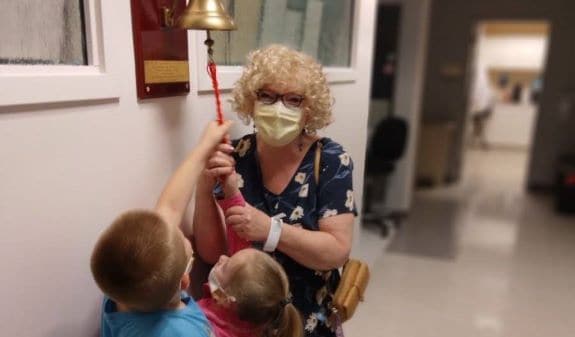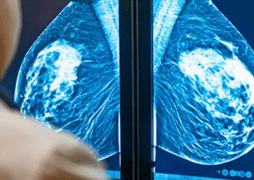Walk the grocery stores aisles these days and you can’t go too many steps before coming across a food with soy as a main ingredient. Yet, despite such popularity – and in part because of it – soy remains an important and somewhat controversial health topic, particularly when it comes to breast cancer.
Many women are still looking for answers to key questions about soy’s potential risks and benefits: Does eating soy increase my risk of breast cancer? Does it lower my risk? What if I’m a survivor? Ongoingresearch has helped to answer some of these questions.
What is soy?
Soy is a plant that originated in Asia and is now grown in many places around the globe. The plant’s beans (the soybeans) can be eaten on their own (like edamame) or used to make soy foods (like tofu, miso, tempeh, soy milk and soy sauce). Soy flour and protein are also added to many prepared foods, from breads to breakfast cereals to energy bars.
Soy contains high amounts of isoflavones. Isoflavones belong to a group of substances called phytoestrogens (plant estrogens). As the name implies, they can have certain qualities similar to the hormone estrogen. Because estrogen can play a key role in breast cancer development and survival, there have been many questions about the risks and benefits of diets high in soy. Lab studies of cells have shown that isoflavones can sometimes act like estrogen and promote tumor growth, and at other times act against the effects of estrogen.1-2
Does soy increase the risk of breast cancer?
If there’s one solid conclusion from all the data on soy and breast cancer, it’s that eating moderate amounts of soy foods very likely does not increase the risk of breast cancer. The majority of high-quality studies and analyses have found that soy foods do not increase risk, even when eaten at levels much higher than those typically seen in the U.S.3-4
Does soy lower the risk of breast cancer?
Although there are not enough data to know whether soy may help protect against breast cancer, many studies suggest that it does.3-4 However, it seems the benefit only comes with a pattern of intake that is seen in most Asian countries, where women begin eating soy early life and eat it in amounts many times greater than typically seen in the U.S.4 In Japan, for example, soy intake ranges from 25 mg to around 50 mg per day. In the U.S., intake ranges from less than 1 mg to 3 mg per day.5
Results from an analysis that combined findings from multiple studies in Asian populations found that women who ate high amounts of soy had a 25 percent lower risk of breast cancer compared to those who ate lower amounts.6 When the same analyses were done in studies of U.S. and other Western populations, there was no link between soy and breast cancer risk.6
As a survivor, is soy safe?
Though the estrogen-like properties of soy seem like they could increase the risk of breast cancer recurrence or mortality (death), current studies suggest that eating moderate amounts of soy foods is safe for breast cancer survivors.7-9
As a survivor, does soy improve survival and lower the chances of recurrence?
Current evidence suggests that a diet high in soy may improve survival and lower the risk of recurrence in women with breast cancer.7-9 The benefits don’t appear limited to Asian populations either.
One analysis combined data from three large, long-running studies of survivors from both Asian and Western countries. It found that women who ate at least 10 mg of soy per day after a breast cancer diagnosis had a 25 percent lower risk of recurrence compared to those eating less than 4 mg per day.9
However, soy is not currently recommended as a way for breast cancer survivors to lower the risk of recurrence. There are still some open questions about these findings because the studies were looking at many different types of soy, and because women who regularly eat soy simply tend to be healthier than those who don’t.9
What about soy supplements?
Most studies looking at soy and breast health have focused on soy foods rather than soy supplements.10
In the lab, researchers can separate soy proteins into individual compounds, called isolates. Individual isolates do not occur in nature. This is similar to say, vitamin A. While many natural things contain vitamin A, pure vitamin A (alone) does not appear in nature. Isolates, like pure vitamin A, can only be created in a lab. Because soy supplements are created in a lab, they can contain individual soy protein isolates.
Some lab studies of cells have shown that soy protein isolates may increase cancer growth.2 So, soy supplements are not currently recommended.
What about soy and hot flashes?
Overall, studies have not shown that soy foods or soy supplements help with hot flashes.11
Should soy be part of an overall healthy diet?
Though soy’s breast health benefits are still unclear, moderate amounts of soy are likely safe to eat and can be part of an overall healthy diet.
Soybeans are high in fiber, healthy oils and protein. Cutting back on animal products by moving toward a more plant-based diet that is rich in fruits, vegetables, whole grain and legumes (like black beans, peanuts and soybeans) has overall health benefits and can also help with weight control – a key factor in breast cancer risk.
Soy supplements, however, are not recommended.
Summary
There’s been a lot of study on a possible link between soy and breast cancer. Current research suggests that eating soy at higher levels typically seen in Asian countries may lower the risk of breast cancer. Eating moderate levels of soy may also lower the risk of recurrence and mortality in breast cancer survivors, but more studies are needed to confirm these findings.
In moderation, soy can be part of an overall healthy diet that focuses on more plant-based foods and less red meat.
What is Komen doing?
According to Komen Scholar, Carol Fabian, M.D., Professor, Department of Internal Medicine at the University of Kansas Medical Center, “After more than three decades of asking questions about the role of soy in breast cancer risk and recurrence we still do not have the answers. Thus Komen’s role in funding research on soy and other weak estrogen-like substances in plants is very important. It is possible that the soy may help prevent breast cancer if soy ingestion is started at a young age, but the primary concern has been in postmenopausal breast cancer survivors and the potential for soy to have an estrogen like action on the cancer cells if any remain. Although research is ongoing, there is little evidence to suggest that there is danger in consuming moderate amounts of soy in food even for survivors. However, until more is known it is probably best to avoid soy supplements after a breast cancer diagnosis.”
Komen has invested more than $3.3 million in research investigating the effects of soy, and its components, on various aspects of breast cancer. Studies include:
- Determining how soy affects breast cancer risk, including studies on high soy or soy-supplemented diets.
- Testing whether soy, or its active components can protect against genetic damage and prevent the development of breast cancer.
- Testing whether soy can enhance the effectiveness of breast cancer treatments or prevent drug resistance.
Learn more about breast cancer research Komen is funding.
Komen resources
Soy and Breast Cancer Risk – Factors Under Study
ww5.komen.org/BreastCancer/FactorsUnderStudy.html#soy
Soy and Breast Cancer Risk – Summary Table of Study Findings
ww5.komen.org/BreastCancer/Table19Soyintakeandbreastcancerrisk.html
References
- Limer JL, Speirs V. Phyto-oestrogens and breast cancer chemoprevention. Breast Cancer Res. 6:119–127, 2004.
- Duffy C, Perez K, Partridge A. Implications of phytoestrogen intake for breast cancer. CA Cancer J Clin. 57(5):260-77, 2007.
- Trock BJ, Hilakivi-Clarke L, Clarke R. Meta-analysis of soy intake and breast cancer risk. J Natl Cancer Inst. 98(7):459-71, 2006.
- Wu AH, Yu MC, Tseng CC, Pike MC. Epidemiology of soy exposures and breast cancer risk. Br J Cancer. 98(1):9-14, 2008.
- Nagata C. Factors to consider in the association between soy isoflavone intake and breast cancer risk. J Epidemiol. 20(2): p. 83-9, 2010.
- Dong JY, Qin LQ. Soy isoflavones consumption and risk of breast cancer incidence or recurrence: a meta-analysis of prospective studies. Breast Cancer Res Treat. 125(2): p. 315-23, 2011.
- Wu AH, Lee E, Vigen C. Soy isoflavones and breast cancer. Am Soc Clin Oncol Educ Book. 102-6, 2013.
- Shu XO, Zheng Y, Cai H, et al. Soy food intake and breast cancer survival. JAMA. 302(22):2437-43, 2009.
- Nechuta SJ, Caan BJ, Chen WY, et al. Soy food intake after diagnosis of breast cancer and survival: an in-depth analysis of combined evidence from cohort studies of US and Chinese women. Am J Clin Nutr. 96(1):123-32, 2012.
- Cassileth BR, Yarett I. Soy Phytoestrogens and breast cancer: An enduring dilemma. The ASCO POST. 3(11), 2012.
- Lethaby A, Marjoribanks J, Kronenberg F, Roberts H, Eden J, Brown J. Phytoestrogens for menopausal vasomotor symptoms. Cochrane Database Syst Rev. 12:CD001395, 2013.



